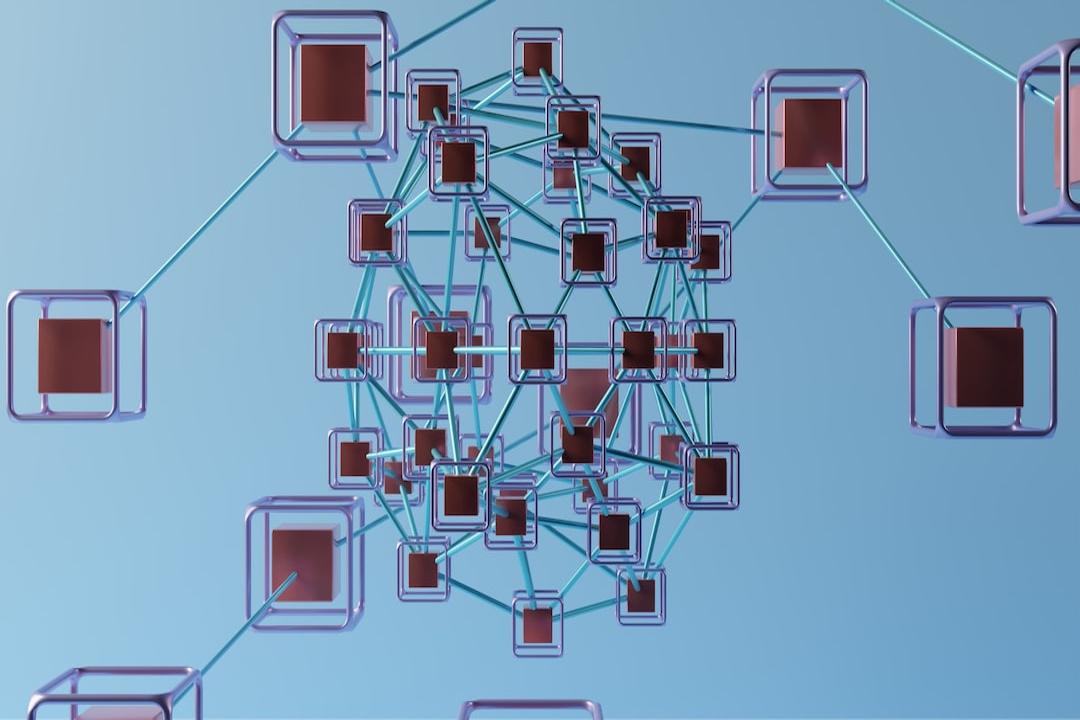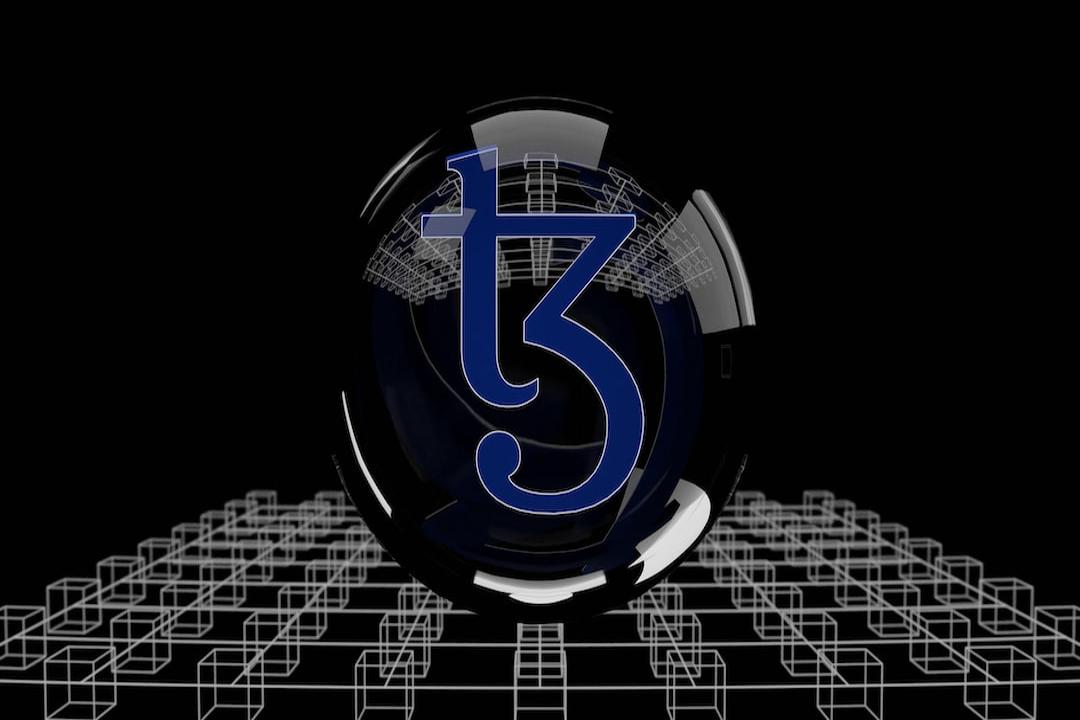The scalability and efficiency issues of blockchain technology have been significantly improved by introducing expansion solutions such as zk Rollups and zk Compression, but what are the differences between the two? This article, written by Kyrian Alex and compiled, translated, and written by “Plain Language Blockchain”, will provide an analysis.
Introduction
For a long time, the need for expansion solutions in blockchain technology has been a controversial topic. It is well known that with the expansion of blockchain networks, the number of transactions per second (TPS) becomes a critical issue. Currently, major blockchains such as Bitcoin and Ethereum have insufficient capacity to handle the transaction volume required for widespread adoption.
For example, Bitcoin processes about 7 transactions per second, while Ethereum processes about 15. In comparison, Visa processes an average of about 1,700 transactions per second. Without expansion solutions, blockchain cannot compete with traditional financial systems and achieve large-scale adoption.
So, what about the cost of actual transactions?
The situation is the same. As more and more people use blockchain simultaneously, transaction fees become very high, making it impractical for small transactions, especially during peak hours. For example, during the DeFi boom in 2020 and 2021, Ethereum’s gas fees skyrocketed, making even small transactions extremely expensive.


So, how do we solve this problem? We solve this problem by introducing expansion solutions.
Expansion solutions are technologies designed to increase the capacity and efficiency of blockchain networks to handle higher transaction volumes. The main goal of expansion solutions is to increase the network’s throughput, i.e., transactions per second (TPS), while maintaining or improving security, decentralization, and cost-effectiveness.
Expansion solutions are crucial for reducing transaction costs, enabling blockchain technology to be accepted by a wider range of users and used in daily life. Slow transaction times and high costs reduce user experience, hinder new user adoption, and limit the availability of decentralized applications (DApps).
To attract and retain users, blockchain networks must provide seamless, fast, and cost-effective transactions, which can be achieved through efficient expansion solutions.
Today, we will explore how different networks are addressing these challenges, specifically comparing zk Rollups on Ethereum and zk Compression on Solana. Both technologies aim to enhance scalability but achieve this goal in different ways, reflecting the unique design principles and priorities of their respective ecosystems.
What are ZK Rollups?
ZK Rollups are Layer 2 expansion solutions that increase the scalability of blockchains by moving computation and state off-chain, while packaging transaction data into batches stored on-chain. They utilize cryptographic proofs called zero-knowledge proofs to prove the validity of these batched transactions without revealing the actual data. This allows for faster and cheaper transactions on sidechains while maintaining the security of the Ethereum mainnet.
How do they work? A sequencer processes transactions in batches off-chain.
The Sequencer generates zk-SNARK (Zero-Knowledge Succinct Non-Interactive Argument of Knowledge) proofs, which are compact cryptographic proofs that verify the validity of transactions without revealing all the details. The proofs and transaction data are submitted to the Ethereum mainnet, where anyone can verify the proofs to ensure the validity of the transactions. In case of dispute, anyone can submit the original transaction data for on-chain settlement, leveraging the robust security of Ethereum. The Rollup includes an encrypted proof (specifically a zero-knowledge proof) used to verify the correctness of bundled transactions. The Ethereum network only needs to verify this proof, rather than each individual transaction, greatly reducing the computational load. Transactions are grouped into Rollups off-chain. Zero-knowledge proofs are generated to confirm the validity of aggregated transactions. The proofs and minimal digest data are submitted for verification on the Ethereum mainnet. Upon successful verification, the state on the Ethereum mainnet is updated to reflect the Rollup transactions.

What is ZK Compression?
ZK Compression is a technique used on the Solana blockchain to reduce the cost of data storage. It only stores the “fingerprint” (hash) of compressed data on-chain while maintaining data privacy. The “ZK” in ZK Compression stands for zero-knowledge, indicating the privacy of the compressed data is protected. This approach helps significantly reduce the amount of data that needs to be stored on-chain, thereby reducing storage costs for developers.
How does ZK Compression work?
ZK Compression reduces the cost of state storage on Solana by utilizing zero-knowledge (ZK) technology, which refers to the cost of storing and maintaining data (such as account balances and smart contract storage) on the blockchain.
Here is a detailed breakdown of how it works:
– The data of each account is compressed into a unique hash value. This hash value includes not only the account information but also its position in the state tree, ensuring uniqueness. This hash value is stored in the leaf nodes of the state tree.

– The state tree is a data structure similar to a Merkle tree, where each node is the hash of its child nodes. The state tree aggregates all the account information and data, compressing them into a top-level hash called the state root.
– The state root, which is the top-level hash of the state tree, is stored on the blockchain. This root serves as the fingerprint of all the data in the tree, ensuring the integrity and completeness of all the data.
– Detailed account data is not directly stored on the blockchain. Instead, it is stored as call data in a cheaper Solana ledger space. Only the state root and some basic metadata are stored on-chain, significantly reducing storage costs while maintaining data security.
– To ensure the integrity and authenticity of the compressed data, ZK Compression uses zero-knowledge proofs (ZK-proofs). These proofs verify the accuracy and integrity of the data without revealing its actual content, ensuring that even the compressed data remains secure and verifiable.
Please note that ZK Compression is not an L2 solution but an upgrade aimed at improving data storage efficiency on Solana.
The key distinction between zk Rollups and zk Compression on Ethereum and Solana lies in their approaches to enhancing blockchain scalability and optimizing data storage:
– zk Rollups: Transaction execution and state storage occur on an auxiliary chain separate from the Ethereum mainnet. The auxiliary chain periodically sends commitments and proofs to the Ethereum mainnet.
– zk Compression: All transaction execution and state storage occur directly on the Layer 1 (L1) chain, namely Solana. There is no separate auxiliary chain involved.
– zk Rollups: Only cryptographic proofs and minimal digest data are submitted to the Ethereum mainnet for verification. This approach minimizes the computational load on the mainnet.
– zk Compression: Only the “fingerprint” (hash) of compressed data and the corresponding ZK proofs are stored on the Solana blockchain. This significantly reduces the amount of data stored on-chain, reducing storage costs.
– zk Rollups: Utilize zk-SNARK (Zero-Knowledge Succinct Non-Interactive Argument of Knowledge) proofs to ensure the validity of transactions without revealing detailed transaction data. This approach ensures privacy on the Ethereum mainnet while maintaining security.
– zk Compression: Combines data compression and ZK proofs to optimize blockchain storage while mathematically proving the integrity of compressed data. It ensures that the decompressed data matches the original data without revealing its content, thus preserving privacy.
– zk Rollups: Considered Layer 2 expansion solutions as they move transaction execution and state management to a secondary chain, enhancing scalability and reducing costs on the mainnet.
– zk Compression: Not classified as a Layer 2 rollup solution but rather an upgrade aimed at improving data storage efficiency directly on Solana’s Layer 1 chain. It optimizes storage costs without introducing a separate execution layer.
In conclusion, both expansion approaches emphasize the importance of a balanced approach that allows the blockchain network to sustainably grow while maintaining its core principles. In this regard, Solana has made significant strides in adopting advanced expansion solutions, paving the way for widespread adoption and innovation in the blockchain industry.
Related Reports
Is zkSync underestimated? V God: Zero-knowledge proof applications underestimate the potential of zk-STARKS, $ZK listed on Binance fell below $0.2
V God’s statement “Ethereum’s orthodox Layer 2”: ZK will unify Rollup within 10 years, and ENS is the most successful non-financial dApp
Detailed analysis of Based Rollup: How to solve the challenges faced by Optimistic and zk


